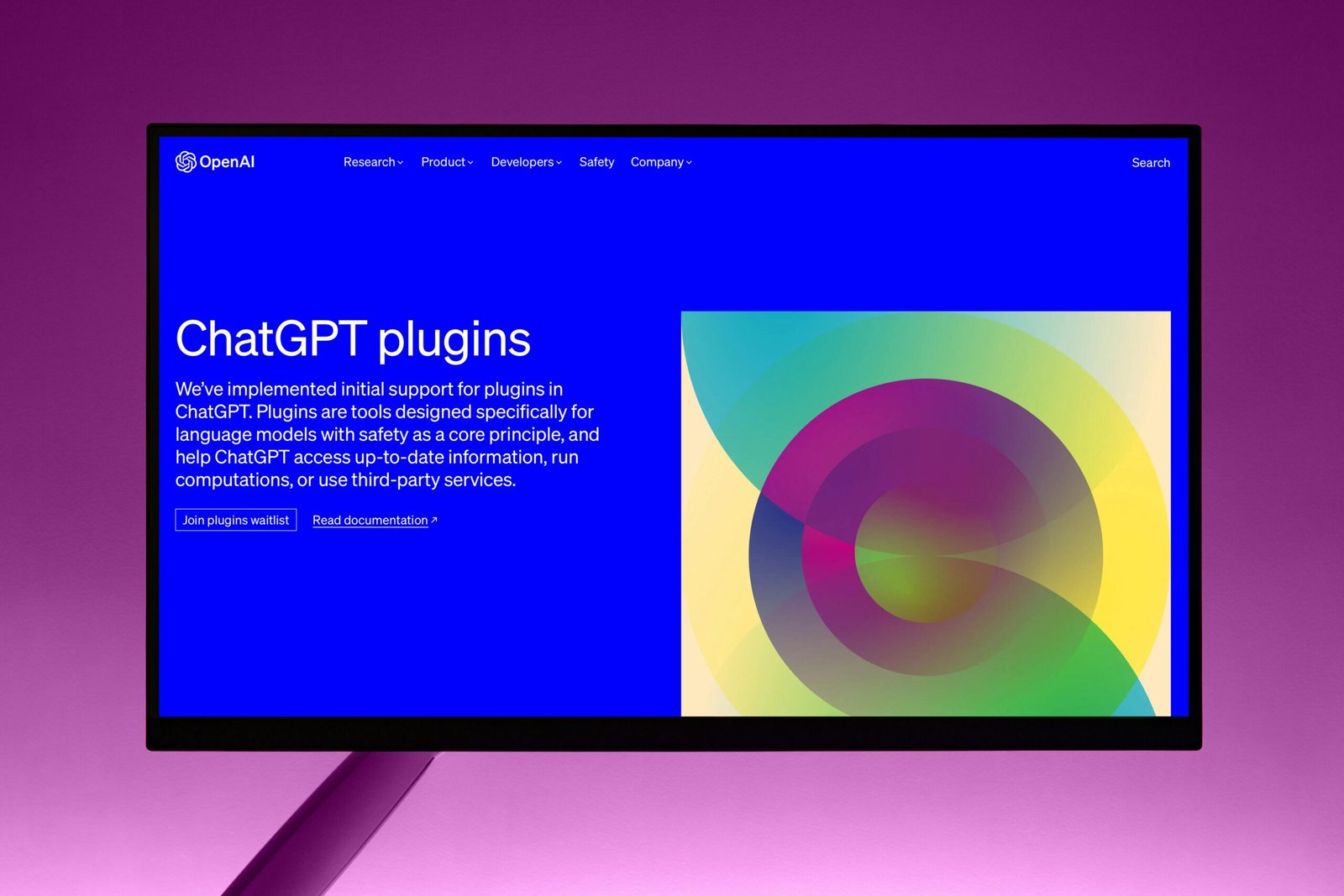In today’s rapidly evolving digital landscape, artificial intelligence has transformed from a futuristic concept into an essential component of successful marketing strategies. Whether you’re considering outsourcing digital marketing solutions or building in-house capabilities, understanding how AI can revolutionize your marketing efforts is crucial for staying competitive. This comprehensive guide will explore practical AI applications, proven strategies, and actionable insights that can elevate your digital marketing performance to unprecedented levels.
From personalized customer experiences to predictive analytics and automated campaign optimization, AI-powered marketing solutions are no longer optional luxuries—they’re competitive necessities. Throughout this article, you’ll discover how to harness these powerful technologies, implement best practices, and determine when professional expertise might accelerate your success.
The AI Revolution in Digital Marketing: Current State and Opportunities
Understanding AI’s Marketing Impact
Artificial intelligence has fundamentally altered how businesses connect with their audiences. Recent studies indicate that 84% of marketers report improved customer engagement after implementing AI solutions, while companies using AI-driven marketing see an average 37% increase in conversion rates.
The technology’s ability to process vast amounts of data, identify patterns, and make real-time decisions has created unprecedented opportunities for precision marketing. From chatbots handling customer inquiries to sophisticated algorithms predicting consumer behavior, AI enables marketers to deliver more relevant, timely, and effective campaigns.
Moreover, AI democratizes advanced marketing capabilities. Small businesses can now access tools previously available only to enterprise-level organizations, leveling the competitive playing field significantly.
Key Areas Where AI Drives Marketing Success
Customer Segmentation and Personalization AI analyzes customer data points including browsing history, purchase patterns, demographic information, and behavioral signals to create highly specific audience segments. This granular segmentation enables personalized messaging that resonates with individual preferences and needs.
Content Creation and Optimization Advanced AI tools now generate blog posts, social media content, email campaigns, and even video scripts. These platforms analyze top-performing content in your industry, ensuring your messaging aligns with proven engagement patterns.
Predictive Analytics and Forecasting Machine learning algorithms examine historical data to predict future trends, customer lifetime value, and optimal timing for marketing campaigns. This foresight allows businesses to allocate resources more effectively and capitalize on emerging opportunities.
Practical AI Implementation Strategies for Maximum ROI
Strategy 1: Intelligent Customer Journey Mapping
Implementing AI-powered customer journey mapping provides invaluable insights into how prospects interact with your brand across multiple touchpoints. These systems track user behavior from initial awareness through conversion and beyond, identifying optimization opportunities at each stage.
Implementation Steps:
- Deploy AI analytics tools that track cross-channel interactions
- Set up automated triggers based on specific user behaviors
- Create dynamic content that adapts to individual user preferences
- Establish feedback loops for continuous journey optimization
Case studies demonstrate that companies using AI-driven journey mapping see 79% improvement in customer satisfaction scores and 67% increase in marketing-qualified leads.
Strategy 2: Automated Content Personalization
AI-powered personalization engines analyze user data in real-time to deliver customized content experiences. This technology considers factors like browsing history, geographic location, device preferences, and past engagement patterns to present the most relevant information to each visitor.
Best Practices:
- Start with email personalization before expanding to website content
- A/B test AI-generated subject lines and call-to-action buttons
- Implement dynamic product recommendations based on browsing behavior
- Use behavioral triggers to deliver timely, relevant messaging
Research shows that personalized marketing campaigns drive 5-8 times higher ROI compared to generic approaches, with AI making this level of personalization scalable for businesses of all sizes.
Strategy 3: Predictive Lead Scoring and Nurturing
Traditional lead scoring relies on manual point assignments and basic demographic information. AI-enhanced lead scoring considers hundreds of data points, including social media activity, email engagement patterns, website behavior, and external signals to predict conversion probability accurately.
Implementation Framework:
- Integrate CRM data with AI lead scoring platforms
- Define clear conversion goals and success metrics
- Set up automated nurturing sequences triggered by scoring thresholds
- Regularly review and refine scoring algorithms based on actual outcomes
Companies implementing AI lead scoring report 50% improvement in sales-qualified lead rates and 37% reduction in customer acquisition costs.
Advanced AI Marketing Techniques and Tools
Conversational AI and Chatbot Integration
Modern chatbots powered by natural language processing provide sophisticated customer support while gathering valuable lead information. These systems handle routine inquiries, qualify prospects, and seamlessly transfer complex issues to human representatives.
Optimization Tactics:
- Train chatbots using historical customer service conversations
- Implement sentiment analysis to escalate frustrated customers quickly
- Use chatbot interactions to gather market research data
- Create branching conversation paths based on user intent
Studies indicate that businesses using AI chatbots see 35% increase in lead generation and 70% improvement in response times.
Programmatic Advertising and Smart Bidding
AI-driven programmatic advertising platforms automatically purchase ad inventory and optimize bidding strategies in real-time. These systems analyze audience data, competitor activity, and market conditions to maximize ad performance while minimizing costs.
Key Benefits:
- Real-time bid optimization based on conversion probability
- Automated audience expansion using lookalike modeling
- Cross-platform campaign coordination and budget allocation
- Fraud detection and brand safety protection
Early adopters of programmatic AI report 40% improvement in cost-per-acquisition and 28% increase in overall campaign performance.
Voice Search Optimization and Audio Content
As voice-activated devices become ubiquitous, optimizing for voice search presents significant opportunities. AI helps identify conversational keywords, optimize content for featured snippets, and create audio content that performs well in voice search results.
Strategic Approaches:
- Focus on long-tail, conversational keyword phrases
- Optimize for local search queries and “near me” searches
- Create FAQ-style content that answers specific questions
- Develop audio content and podcast marketing strategies
Voice search optimization using AI tools has shown 23% improvement in organic traffic and 31% increase in local business inquiries.
Measuring AI Marketing Success: KPIs and Analytics
Essential Metrics for AI-Powered Campaigns
Engagement Metrics
- Click-through rates on personalized content
- Time spent on AI-curated pages
- Social media engagement on AI-generated posts
- Email open rates for AI-optimized subject lines
Conversion Metrics
- Lead quality scores and conversion rates
- Customer acquisition cost reduction
- Revenue attribution to AI-driven campaigns
- Customer lifetime value improvements
Operational Metrics
- Campaign setup and optimization time savings
- Content production efficiency gains
- Customer service response time improvements
- Marketing team productivity increases
ROI Calculation Framework
Measuring AI marketing ROI requires comprehensive tracking of both direct revenue impact and operational efficiency gains. Successful companies typically see 200-300% ROI within the first year of AI implementation, with returns increasing as systems learn and optimize over time.
Calculation Components:
- Direct revenue increases from improved conversion rates
- Cost savings from automation and efficiency gains
- Reduced customer acquisition costs through better targeting
- Increased customer retention and lifetime value
When to Seek Professional AI Marketing Support
While these strategies can be implemented independently, those with limited resources or expertise may benefit from professional assistance. At Popnest Media, our team of specialists can provide dedicated AI marketing support tailored to your specific needs. Visit our homepage to schedule a consultation with one of our experts.
Professional AI marketing services become particularly valuable when:
- Your current team lacks technical expertise in AI implementation
- You need rapid deployment of complex AI systems
- Integration with existing marketing technology requires specialized knowledge
- Custom AI solutions are necessary for your unique business requirements
Future-Proofing Your AI Marketing Strategy
Emerging Trends and Technologies
Artificial General Intelligence (AGI) in Marketing Next-generation AI systems will provide even more sophisticated analysis and decision-making capabilities, enabling hyper-personalized marketing at unprecedented scale.
Augmented Reality (AR) and AI Integration Combining AR experiences with AI-powered personalization will create immersive, interactive marketing campaigns that drive deeper engagement.
Blockchain and AI for Marketing Transparency Blockchain technology will provide verifiable data for AI algorithms, improving trust and accuracy in marketing attribution and customer insights.
Preparing for Continuous Evolution
Successful AI marketing requires commitment to ongoing learning and adaptation. Technology evolves rapidly, and staying current with best practices ensures continued competitive advantage.
Future-Proofing Strategies:
- Invest in flexible, scalable AI platforms
- Maintain data quality and governance standards
- Develop internal AI literacy across marketing teams
- Build partnerships with technology providers and consultants
Conclusion: Embracing AI for Marketing Excellence
Artificial intelligence represents the most significant advancement in marketing technology since the internet’s inception. From personalized customer experiences to predictive analytics and automated optimization, AI empowers businesses to achieve unprecedented levels of marketing effectiveness and efficiency.
The strategies and techniques outlined in this guide provide a roadmap for implementing AI in your marketing efforts, regardless of your current experience level or budget constraints. Success requires commitment to experimentation, continuous learning, and strategic implementation of the right tools and processes.
Whether you choose to implement these strategies independently or seek professional support, the time to embrace AI marketing is now. Companies that delay adoption risk falling behind competitors who are already leveraging these powerful capabilities to drive growth and success.
Ready to transform your marketing with AI? Start by selecting one or two strategies from this guide and begin implementation immediately. For comprehensive AI marketing solutions and expert guidance, contact our team to discuss how we can accelerate your success.
Frequently Asked Questions
Q: How much does it cost to implement AI marketing solutions?
A: AI marketing costs vary significantly based on the tools and level of implementation. Basic AI tools like email personalization platforms start around $50-200 monthly, while comprehensive enterprise solutions can range from $1,000-10,000+ monthly. Many businesses see positive ROI within 3-6 months of implementation, making it a worthwhile investment for most companies.
Q: Do I need technical expertise to use AI marketing tools?
A: Many modern AI marketing platforms are designed for non-technical users, featuring intuitive interfaces and guided setup processes. However, more advanced implementations or custom solutions typically require technical expertise. Starting with user-friendly platforms allows you to gain experience before moving to more sophisticated tools.
Q: How long does it take to see results from AI marketing implementation?
A: Most businesses observe initial improvements within 2-4 weeks of implementing AI marketing tools, with significant results typically appearing within 2-3 months. However, AI systems continuously learn and improve, so performance gains often accelerate over time as algorithms optimize based on more data.
Q: Can AI replace human marketers entirely?
A: AI enhances rather than replaces human marketing expertise. While AI excels at data analysis, pattern recognition, and automation, human creativity, strategic thinking, and relationship building remain essential. The most successful marketing teams combine AI capabilities with human insight and creativity.
Q: What data do I need to start using AI marketing effectively?
A: Effective AI marketing requires quality customer data including demographics, behavioral information, purchase history, and engagement metrics. Start with the data you currently collect, then gradually expand data collection as your AI capabilities grow. Clean, well-organized data is more valuable than large amounts of poor-quality information.




